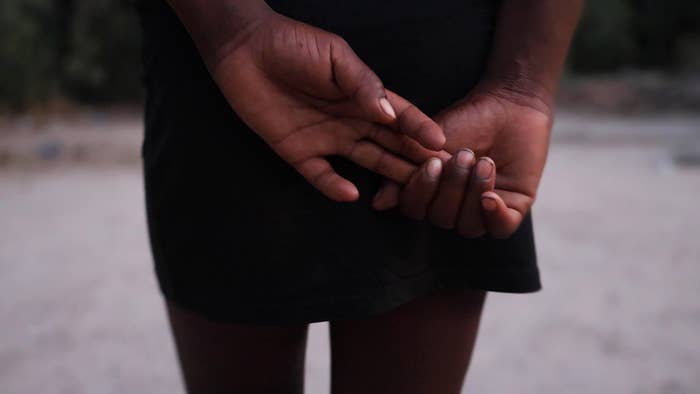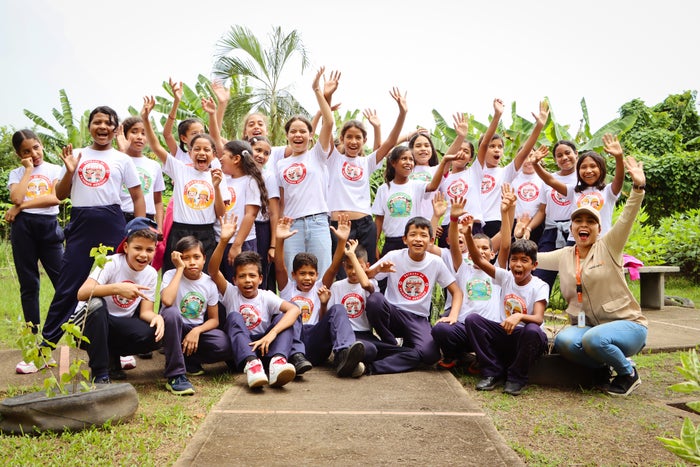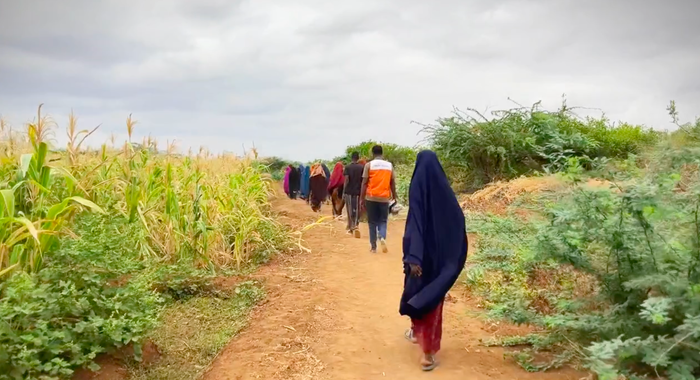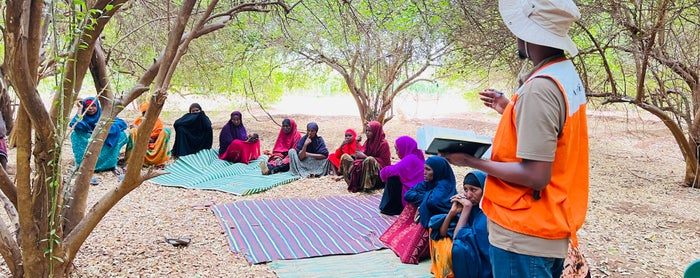*Warning this story contains sensitive content, including sexual exploitation *
15 year old Cavo wishes she could attend school, like the other girls. But Cavo isn’t like the other girls, not anymore.
Carrying the sole responsibility of providing for her mother and grandmother, Cavo works. Despite three different jobs, there is rarely enough for them all to eat each day. Some days all they eat is heated up leaves.
She works at the local market, collects washing and devastatingly, with no other options, she began prostituting her young body.
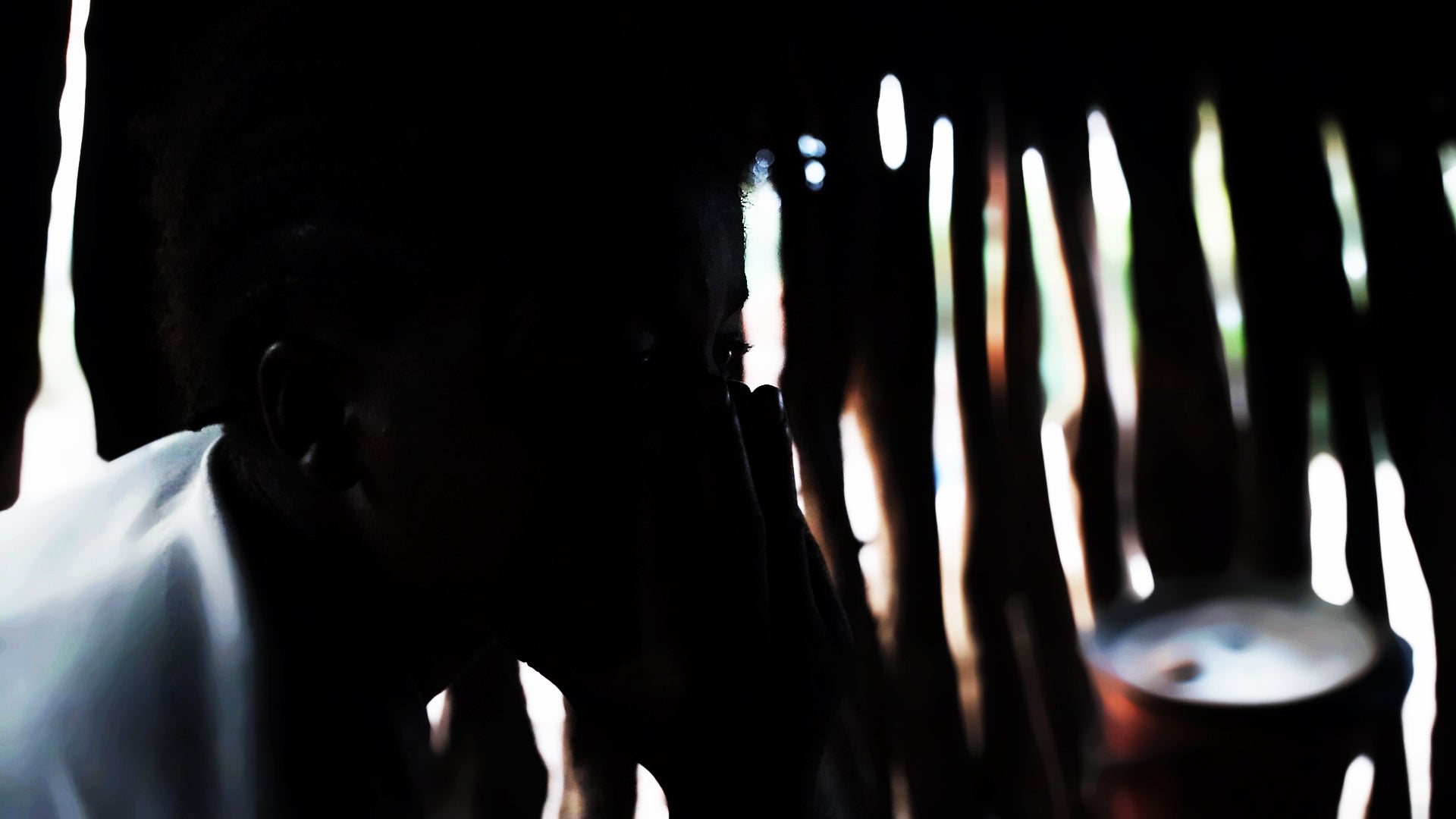
Cavo sits inside her family's small hut where she bravely tells us her story
Cavo knows the stigma and dangers of this work and she feels embarrassed. Courageously, she wanted to tell us her story.
“The drought, is affecting us a lot. If we can’t get anything then we go to bed without eating."
“Yesterday we didn’t eat anything and today we had to wake up very early to collect some leaves we have grown. That’s what we’re eating today.”
“I sleep with men because I have to support my mother.”
“I do this because of my mother. She is suffering because of hunger.”
“I support my mother and grandmother with food.”
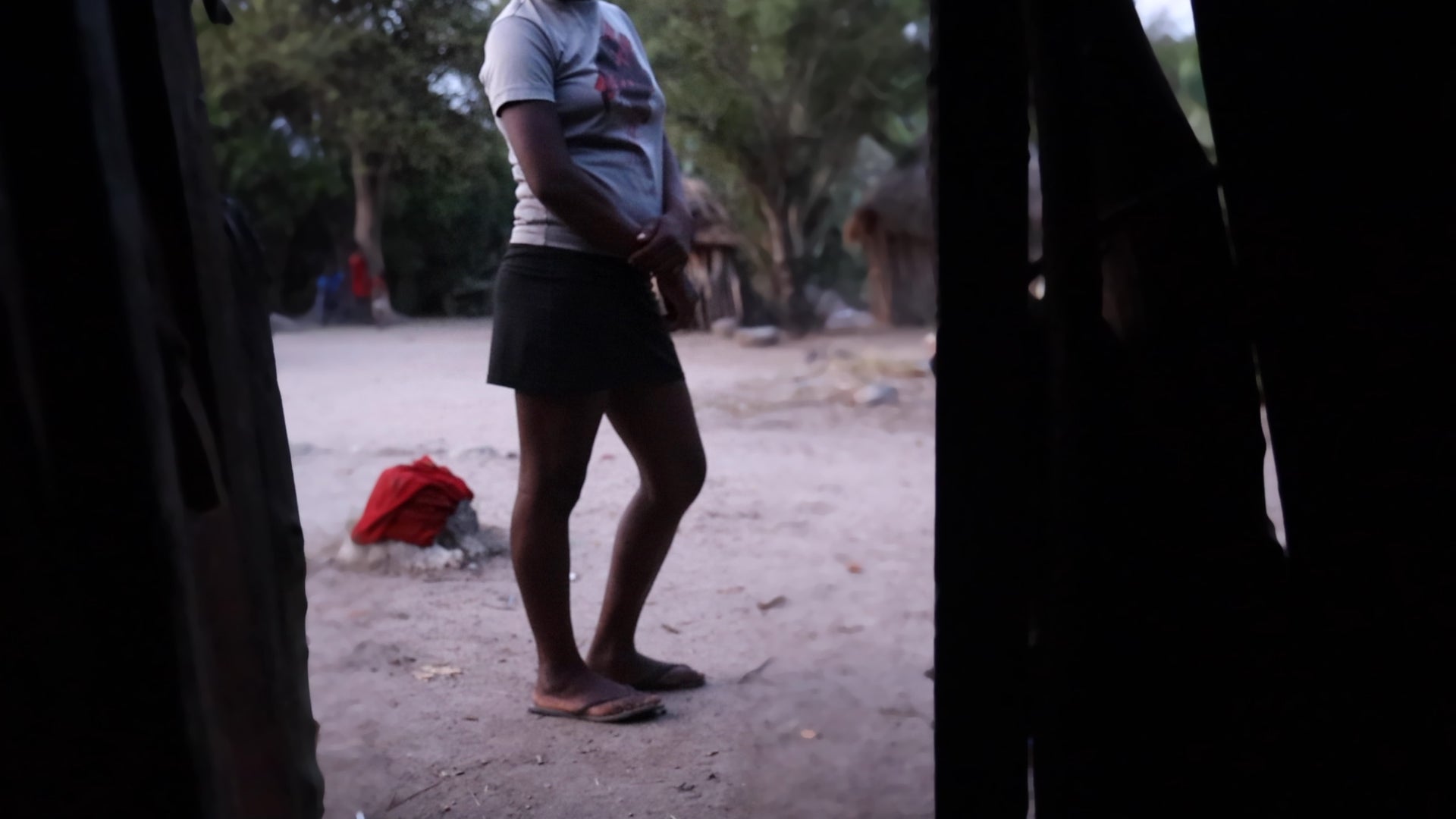
Cavo outside her door. She is not naive to the dangers of prostitution including, HIV, pregnancy and abuse
Cavo is one of the millions of girls and women facing cruel realities such as this. In the face of alarming food shortages, price increases and the destruction of crops, climate and food are becoming two of the most critical issues facing the world’s most vulnerable.
Cavo goes onto explain the heartbreaking reality of the situation.
“If men come, then I sleep with them. If I deny them, how will I survive?”
“They will give me something.”
“Sometimes they lie and end up giving you only 500 or 200 Kwanzas.” (USD 1 or 40 cents)
“If it was not for the drought and hunger I wouldn’t be here doing this. I’d be working and studying like other children.”
Cavo is not alone.
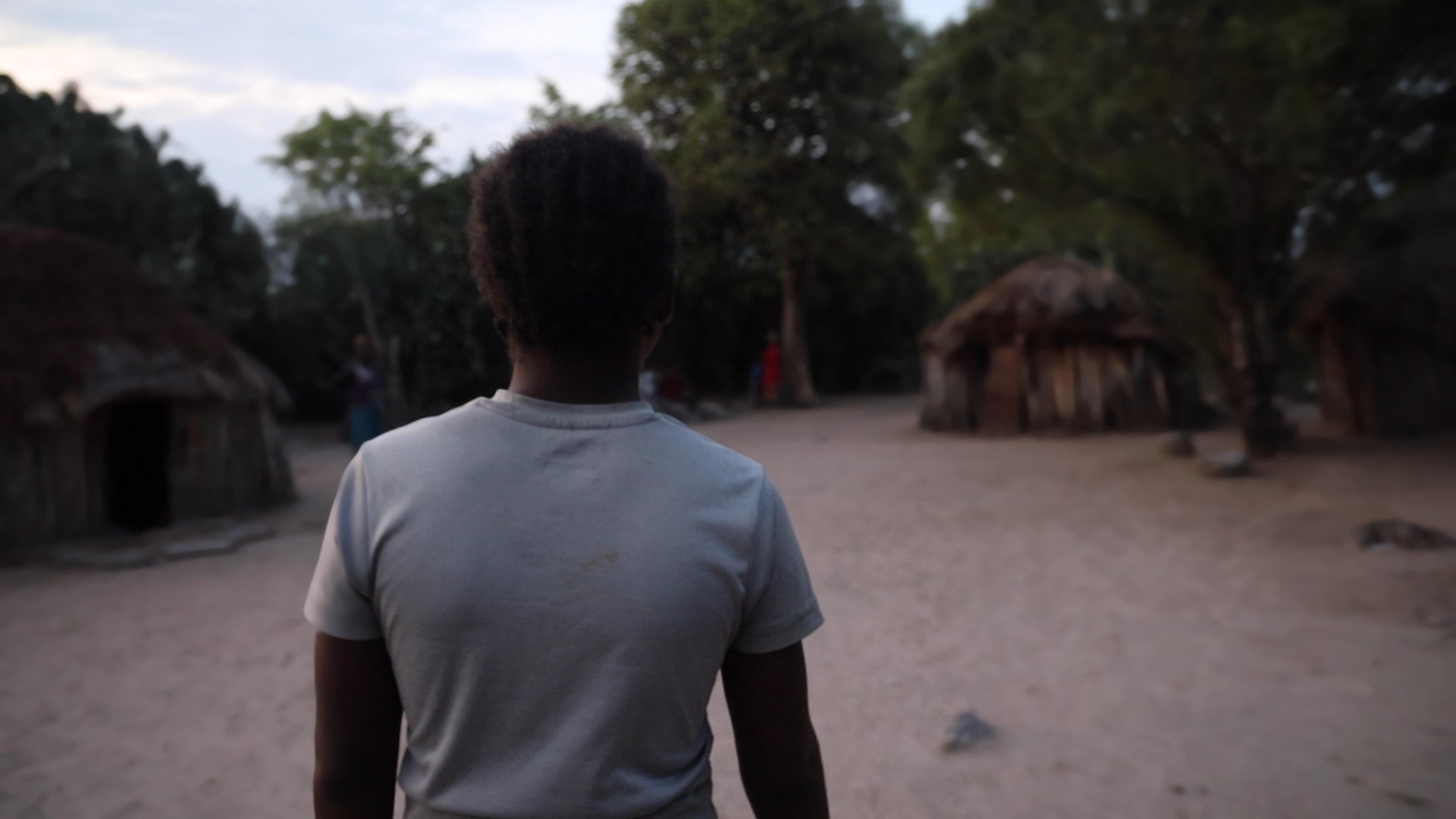
Cavo knows the stigma of prostitution in the village, but she sees no other way to help her family survive
Across the world, in urban slums, remote villages or camps, we see the effects of climate change and how it is explicably linked to severe food shortages which lead to exploitation, especially of women and girls.
Cavo's story represents the human cost of climate change. Unjustly, it is those least responsible paying the highest price.
We must go beyond science and our natural world to also see the human cost of climate change. To ensure childhoods are not lost to exploitation and communities can build sustainable futures.
*name changed to protect identity
What can I do?
It’s easy to feel helpless in situations like this but rest assured… you, us, everyone, together, can help make life-changing impact. And we are!
Here are two different ways you can be a part of the change.
- 1
Donate
Every gift makes a difference. Our Childhood Rescue fund helps children living in the world’s most dangerous places.
Donate Now - 2
Share on Social Media
Raising awareness is vital. Help make people aware of the situation and the difference we can make, together.
